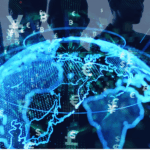In a recent development, tensions between leading artificial intelligence firms Anthropic and OpenAI have intensified. The situation unfolded when Anthropic revoked OpenAI’s access to its AI model, Claude. Details emerged citing a breach of terms of service as the reason. This incident has raised questions about competitive ethics and collaboration within the AI industry. The implications for future cooperation between AI companies could shape the landscape of technological progress. Stakeholders are likely to watch closely as both companies navigate this challenge.
Anthropic’s decision stemmed from OpenAI’s alleged use of Claude to advance its own AI capabilities. Past reports have highlighted the competitive nature between these industry players. The reaction indicates a commitment to safeguarding proprietary technology amid growing concerns over intellectual property violations. Both firms have previously demonstrated a willingness to explore similar technological territories, intensifying the competitive atmosphere.
What Led to the Decision?
The revocation occurred after Anthropic learned OpenAI’s technical team was using Claude for purposes extending beyond the agreed-upon terms. Specifically, OpenAI integrated Claude into its internal systems for testing and comparison. This was deemed a violation of clauses preventing the use of Anthropic’s technology for developing rival products or training competitive models.
Can AI Companies Maintain Competitive Ethics?
The incident raises questions about maintaining fair play amidst competitive pressures. While it is standard practice to evaluate rival AI systems for benchmarking, the extent of such activities is under scrutiny. OpenAI expressed disappointment, highlighting that their API access to Anthropic was based on mutual availability.
“It’s industry standard to evaluate other AI systems to benchmark progress and improve safety,” stated OpenAI Chief Communications Officer Hannah Wong. “While we respect Anthropic’s decision to cut off our API access, it’s disappointing considering our API remains available to them.”
Anthropic underscored the importance of service agreements, emphasizing protection of their technological advancements.
“Claude Code has become the go-to choice for coders everywhere,” remarked Anthropic spokesperson Christopher Nulty. “Unfortunately, this is a direct violation of our terms of service.”
Companies now face the challenge of upholding such agreements while pushing the boundaries of innovation.
Amidst this discord, there’s ongoing debate across the industry about the trajectory of large language models like Claude. Experts argue the scalability of such models may be reaching a plateau due to data and computing constraints. These concerns have led to discussions about new strategies beyond simply expanding datasets and computational power.
Further insights suggest the cost of scaling AI systems is becoming prohibitive, prompting a reevaluation of current methodologies. This debate could play a critical role in shaping future technological developments. Consensus may drive creative solutions, ensuring that innovation continues sustainably.
This clash between Anthropic and OpenAI serves as a reminder of the delicate balance between competitive advantage and technological collaboration. The broader conversation about AI model scaling highlights the challenges that companies face as they strive for excellence. While current methods in scaling AI models, such as data expansion and increased computational power, have driven advancements, they may no longer be sufficient. Seeking alternative approaches will be essential to maintain the growth trajectory as data resources become costly.









